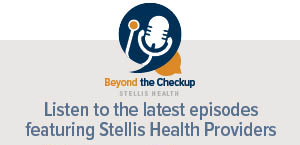Understanding Early Menopause: Signs and What You Can Do
Menopause is a natural biological process that marks the end of a woman’s reproductive years.
However, for some women, this transition occurs earlier than the typical age range of 45 to 55 years.
Early menopause, which can happen in a woman’s 30s or even earlier, can bring about various physical and emotional changes.
Recognizing the signs early on can help in managing symptoms effectively and taking proactive steps towards maintaining health and well-being.
Understanding the Menopausal Transition
Let’s explore the typical stages of menopause to better understand the changes that may occur:
- Premenopause:
- Definition: This is the period during which a woman has regular menstrual cycles and is in her reproductive years. She may begin to experience very early signs of hormonal changes, but they are typically not noticeable.
- Duration: It varies widely among women but typically encompasses the years from puberty until the early or mid-40s.
- Perimenopause:
- Definition: Often referred to as “menopause transition,” perimenopause is the period when women start to experience more noticeable changes signaling the approach of menopause. During this stage, the ovaries gradually begin to produce less estrogen.
- Symptoms: Women may experience irregular menstrual cycles, hot flashes, sleep disturbances, mood swings, and changes in sexual function.
- Duration: It typically begins several years before menopause, usually in a woman’s mid-to-late 40s, and lasts until menopause, the point when the ovaries stop releasing eggs entirely.
- Menopause:
- Definition: Menopause is confirmed when a woman has gone without a menstrual period for 12 consecutive months. At this point, the ovaries have nearly stopped producing estrogen and releasing eggs.
- Symptoms: Common symptoms include hot flashes, night sweats, vaginal dryness, increased anxiety or irritability, and potential changes in cognition or mood.
- Typical Age: Most women reach menopause between the ages of 45 and 55, with the average age in the United States being about 51.
- Postmenopause:
- Definition: This stage follows menopause and lasts for the rest of a woman’s life. During postmenopause, menopausal symptoms like hot flashes may ease for many women; however, due to lower estrogen levels, postmenopausal women are at increased risk for several health conditions.
- Health Risks: Includes osteoporosis, cardiovascular disease, and changes in metabolic profile. It’s essential for women in this stage to have regular health screenings and possibly lifestyle or medical interventions to manage these risks.
Understanding these stages helps in recognizing and managing the changes in a woman’s body and maintaining health and quality of life throughout the menopausal transition.
Here’s what you need to know about the signs of early menopause and how to address them.
Signs of Early Menopause

- Irregular Periods: One of the first signs of early menopause is changes in menstrual patterns. Your periods may become irregular, less frequent, or lighter than usual before they stop entirely.
- Hot Flashes and Night Sweats: These are common symptoms of menopause, characterized by sudden feelings of warmth that seem to spread through the body. You might also experience sweating during the night that can disrupt sleep.
- Vaginal Dryness: Hormonal changes during menopause can lead to decreased vaginal lubrication, which might result in discomfort or pain during sexual activity.
- Mood Swings and Irritability: The hormonal upheavals of menopause can affect your mood, leading to increased irritability, anxiety, or episodes of sadness.
- Sleep Problems: Many women report difficulty sleeping, which can be due to night sweats, but also because of increased anxiety or insomnia associated with hormonal changes.
- Decreased Fertility: As ovulation becomes irregular, fertility declines significantly, which can be an early indicator of menopause if you’re trying to conceive.
- Changes in Libido: Hormonal changes might also influence sexual desire, leading to a decreased interest in sexual activity.
- Cognitive Changes: Some women may experience slight forgetfulness or difficulty concentrating, often referred to as “brain fog.”
Exploring Lesser-Known Symptoms of Menopause
While many are familiar with hot flashes and mood swings associated with menopause, there are several lesser-known symptoms that can also significantly impact daily life.
Understanding these can help you better manage this transitional phase:
- Burning Mouth Syndrome: Some women experience a surprising and uncomfortable sensation known as burning mouth syndrome, where you feel a scalding sensation on your tongue, lips, or throughout your mouth. This symptom can be particularly distressing because it affects your ability to enjoy meals and can persist for an extended period.
- Chills: Alongside the more well-known hot flashes, some women may experience sudden, intense chills. These are not as commonly discussed but can be just as disruptive as hot flashes, affecting comfort and sleep patterns.
- Nausea: Hormonal fluctuations during menopause can also lead to feelings of nausea, which can be unexpected and unsettling. For some, this can be particularly pronounced in the morning or after eating.
- Food Aversions: Changes in hormones may alter your sense of taste and smell, leading to new aversions to foods you once enjoyed. This can affect your nutrition and enjoyment of eating, making it important to find suitable dietary alternatives.
Managing Menopause

- Consult a Healthcare Provider: It’s important to discuss any of these symptoms with a healthcare provider who can offer diagnosis and management strategies. This might include hormone replacement therapy (HRT), which can alleviate symptoms and help prevent long-term health risks such as osteoporosis and heart disease associated with early menopause.
- Lifestyle Adjustments: Incorporating regular exercise, a balanced diet, and adequate sleep can help manage symptoms and improve overall health. Focus on calcium and vitamin D-rich foods to support bone health.
- Emotional Support: Engage in activities that reduce stress, such as yoga, meditation, or spending time in nature. Counseling or support groups for women going through menopause can also be beneficial.
- Alternative Therapies: Some women find relief through alternative therapies like acupuncture, herbal supplements, and mindfulness practices. Discuss these options with your healthcare provider to ensure they are safe and potentially beneficial for you.
Your Next Steps
Navigating early menopause or identifying troublesome signs of perimenopause can feel daunting, but you’re not alone.
Understanding your body’s signals and knowing when to seek help are crucial steps in managing this transition effectively.
If you suspect you’re entering menopause earlier than usual or are experiencing symptoms that disrupt your daily life, we encourage you to reach out for support.
At Stellis Health, our dedicated team is here to guide you through every stage of this journey.
We offer personalized consultations and a range of treatments tailored to address the unique challenges of menopause.
Don’t hesitate to contact us to schedule an appointment. Together, we can develop a plan that ensures your health and well-being during this significant phase of life.
Remember, early intervention can make a substantial difference in how you experience menopause.
Thankfully, there are a variety of ways to alleviate discomfort from hormone therapy to natural habit changes.
We can help determine the best course of action specifically for you – https://stellishealth.com/appointments/.
You may also be interested in:
• Establish a self care routine, that will stick
• Podcasts







